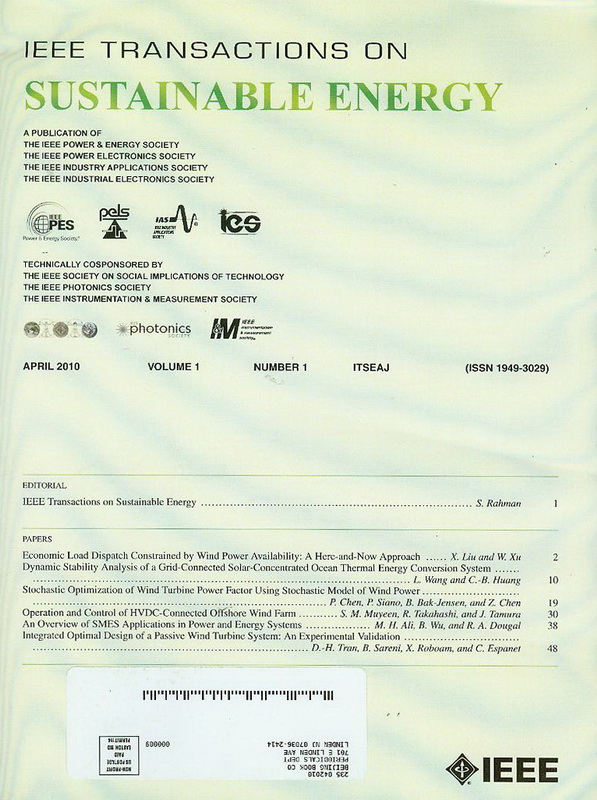Hybrid Modeling and Switching Control of Electric Vehicle Aggregation for Frequency Regulation
IF 10
1区 工程技术
Q1 ENERGY & FUELS
引用次数: 0
Abstract
The aggregation and control of massive electric vehicles (EVs) are crucial for grid frequency regulation (FR). However, challenges such as disordered charging, high computational and communication burdens need to be addressed. To this end, a hierarchical hybrid modeling and switching control method for EV aggregation (EVA) is proposed. For modeling, a hybrid state set for EVs comprising three discrete states and one dynamic state is established at the local level. The dynamic state's flexibility allows EVs to charge orderly while considering user demands. At the aggregation level, a Markov-based EVA state space model is designed, integrating the user's willingness-to-pay (WTP) index and hybrid state. It estimates the EVA's FR capacity (FRC) with a lower communication burden and reduces computational burden by simplifying control dimensions. For control, a model predictive control (MPC)-based state switching method is designed at the aggregation level, considering user's FR willingness and power cancellation issue. Furthermore, a predictive compensation mechanism is designed to address model parameter errors resulting from asynchronous control cycles. At the local level, a probabilistic response method is proposed for responding to dispatched control signals, which reduces battery degradation through the state of charge (SOC) based response probability generation. Simulation results validate the method's effectiveness.基于频率调节的电动汽车聚合混合建模与开关控制
大规模电动汽车的聚集和控制是电网频率调节的关键。然而,需要解决诸如无序收费、高计算和通信负担等挑战。为此,提出了一种EV聚合(EVA)的分层混合建模和切换控制方法。为了建模,在局部建立了由三个离散状态和一个动态状态组成的电动汽车混合状态集。动态的灵活性使电动汽车能够在考虑用户需求的同时有序充电。在聚合层,设计了基于马尔可夫的EVA状态空间模型,将用户的付费意愿指数与混合状态相结合。以较低的通信负担估计EVA的FR容量(FRC),并通过简化控制维度减少计算负担。在控制方面,考虑用户FR意愿和功率抵消问题,在聚合层设计了基于模型预测控制(MPC)的状态切换方法。此外,设计了一种预测补偿机制,以解决异步控制周期引起的模型参数误差。在局部层面,提出了一种响应调度控制信号的概率响应方法,通过基于荷电状态(SOC)的响应概率生成来减少电池退化。仿真结果验证了该方法的有效性。
本文章由计算机程序翻译,如有差异,请以英文原文为准。
求助全文
约1分钟内获得全文
求助全文
来源期刊

IEEE Transactions on Sustainable Energy
ENERGY & FUELS-ENGINEERING, ELECTRICAL & ELECTRONIC
CiteScore
21.40
自引率
5.70%
发文量
215
审稿时长
5 months
期刊介绍:
The IEEE Transactions on Sustainable Energy serves as a pivotal platform for sharing groundbreaking research findings on sustainable energy systems, with a focus on their seamless integration into power transmission and/or distribution grids. The journal showcases original research spanning the design, implementation, grid-integration, and control of sustainable energy technologies and systems. Additionally, the Transactions warmly welcomes manuscripts addressing the design, implementation, and evaluation of power systems influenced by sustainable energy systems and devices.
 求助内容:
求助内容: 应助结果提醒方式:
应助结果提醒方式:


